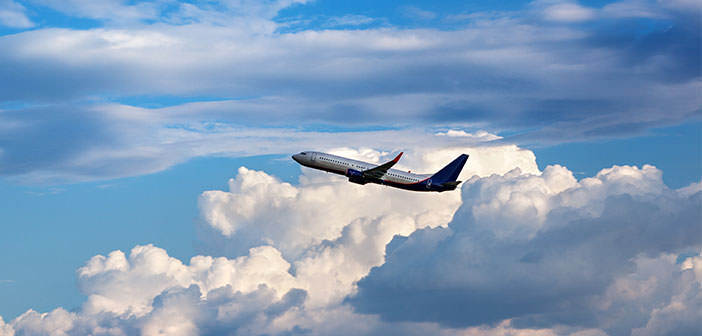Flights to the US, reinforcing security measures for electronic device control
The US has announced a reinforcement of security measures, which are not yet clearer, for all flights to the country. Companies and airports are called upon to cooperate, as the raising of various prohibitions is prohibited.
The US Department of Homeland Security (DHS) has announced that in the coming months, it will have a general reinforcement of security measures for all commercial flights directed to the country to which airlines and airports around the world will have to Comply with the risk of the ban on electronic devices or even flying to the USA.
John Kelly, DHS secretary, said yesterday: the new security measures have not been specified in detail but will be ” visible and unseen ” and will include a rise in screening levels for passengers and their devices, expansion Inspections with trained dogs to detect explosives, the adoption of advanced technologies, and the creation of new pre-clearance points at foreign airports. The new measures will affect 105 countries, around 280 airports, 180 airlines, 2100 daily flights carrying 325,000 passengers to the US.
DHS has already begun in recent days a prohibition on embarking in a cabin of larger electronic devices than a mobile phone for some flights from the Middle East and Africa. Over the past few weeks, the idea of widening this ban was also blurred at European airports, a prospect that now seems to have come to an end, but has not yet identified a common line for an agreement.
Kelly said, ” We have continued to confront us with the threats to passenger aircraft. It is not a new problem, but threats have evolved. Since September 11, the US has seen a series of tempting attacks on commercial aviation.
Bombs in shoes, explosive liquids, bombs under the clothes, and a plan to detonate an explosive cargo. Most of these were fired on time, but not always our enemies failed. Those who choose not to collaborate or to take these measures slowly may be subject to other restrictions, including the prohibition on carrying electronic devices or even suspending flights to the US. ”
Inevitably airports, and especially airlines, will be under pressure to be in line with new security measures since laptops, and tablets are indispensable for those traveling on business or on the job, an audience representing a fair share of customer’s civil aviation market.
DHS said the new measures will be implemented in phases, even in this case without specifying further details, over the next few weeks and months. From what we learn, airlines have 21 days to comply with new explosion detection standards and 120 days for the rest.

